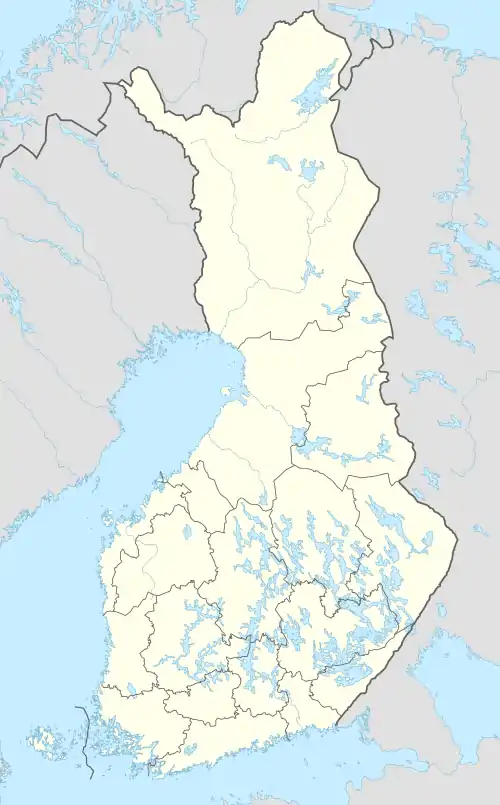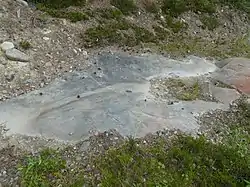Jormua Ophiolite
The Jormua Ophiolite (Finnish: Jormuan ofioliitti) is a remnant of ancient oceanic lithosphere near the village of Jormua close to the geographical centre of Finland. The rocks of the Jormua Ophiolite formed about 1,950 million years ago in the Paleoproteozoic Era. The conditions under which the ocean crust rocks of Jormua formed was likely similar to present-day Red Sea. Thus, a linear sea of this type is thought to have existed between two continental landmasses in Finland. At some point this sea closed and the ophiolite was obducted.[1]

The Jormua ophiolite is the best preserved one along a larger chain of ophiolites that occur within the Kainuu Schist Belt.[1]
The crustal rocks of the ophiolite include pillow lava, hyaloclastite, sheeted dykes, gabbro, plagiogranite and ultramafic cumulate rock.[2] Mantle rocks exposed in the ophiolite are the peridotite varieties of lherzolite, harzburgite and dunite.[2]

References
- Peltonen, Petri; Kotinen, Asko; Huhma, Hannu (1996). "Petrology and Geochemistry of Metabasalts from the 1.95 Ga Jormua Ophiolite, Northeastern Finland". Journal of Petrology. 37 (6): 1359–1383.
- Peltonen, P.; Kontinen, A. (2004). "The Jormua Ophiolite: A Mafic-Ultramafic Complex from an Ancient Ocean-Continent Transition Zone". In Kusky, Timothy M. (ed.). Precambrian Ophiolites and Related Rocks. Developments in Precambrian Geology. 13. Elsevier B.V.